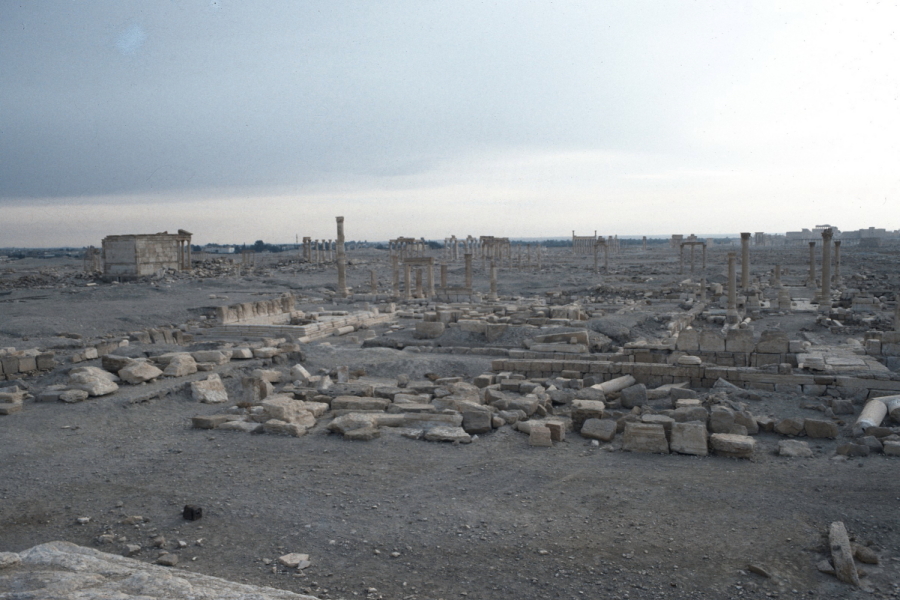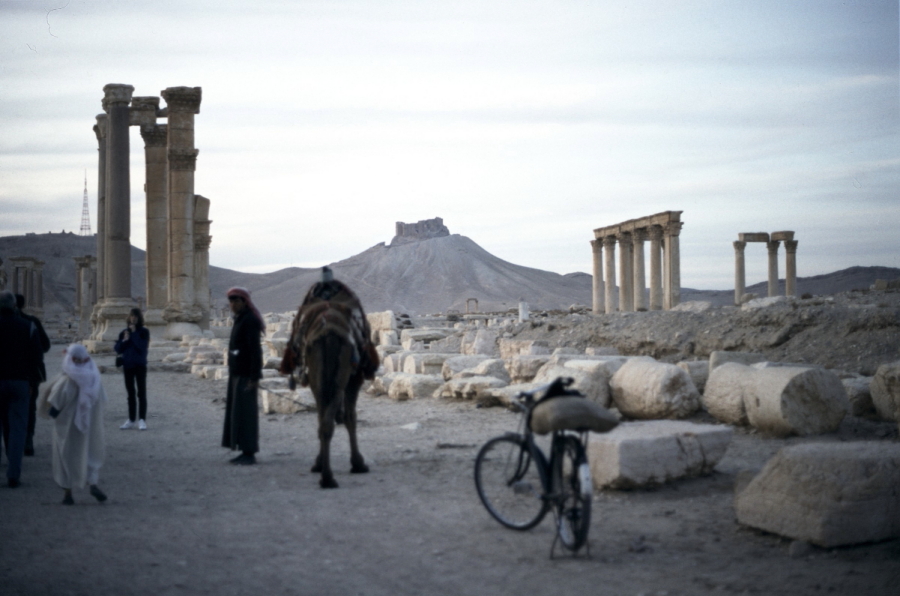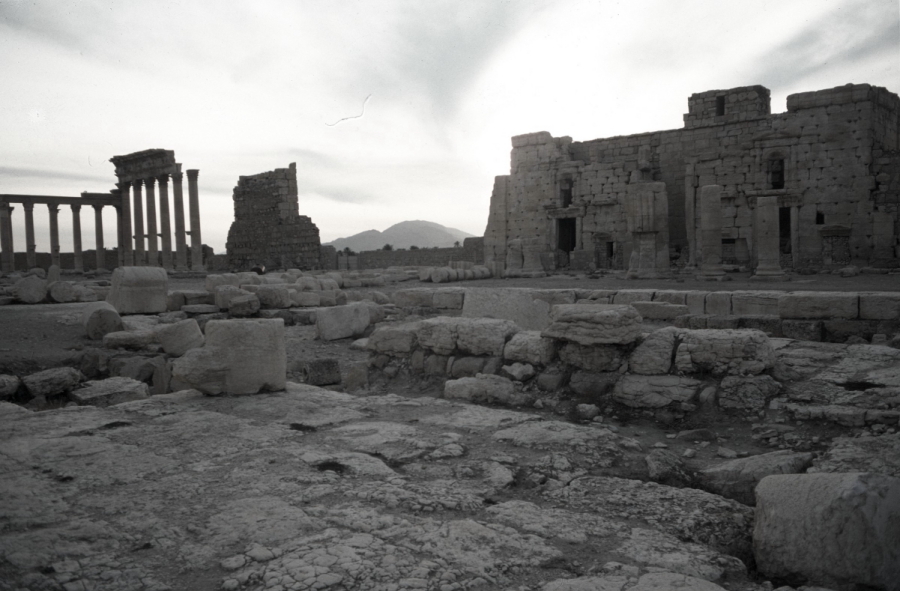Monday 29th November 1993, afternoon
When we booked this trip the brochure said it demanded stamina, it warned it was not a holiday for anyone seeking a leisurely break with plenty of free time to relax. Maybe that is true, we are certainly on a packed schedule but it is not the stamina needed for a hike or a long cycle ride, anyone without stamina could rest and nap on the coach. But on this trip the coach doubles as a class room. As the bus leaves the outskirts of Damascus heading for Palyrma the guide continues his enthusiastic presentation of his country.
The Syrians, our guide explains, are self sufficient in phosphate fertiliser. I learn that they have hot, dry summers and cold, wet winters, although the deserts, well, they get little rain at any time although with the right irrigation they can be used for growing crops. There are underground water supplies but some are heavily contaminated with phosphate. I am not sure whether he means that the contaminated water is unsuitable for agriculture or is something to do with phosphate fertiliser or both. I think have misheard something. Maybe I will look it up later.
The guide takes a break from his talk and passes along the bus with water and boxes of biscuits. The biscuits are deliciously crispmade with pistachio nuts and sesame seeds. I sit back and watch the passing scenery as I eat the biscuit. We are driving through a rocky dessert and still 200km from Palmyra. The guide is keen we arrive in time to see it at sunset, about 16:00 at this time of year.
The desert we are passing through gets less than 150mm of rain per year. The strips of agricultural land are sustained by irrigation.
We arrive at Palmyra. The guide points out the temple to the god Bel, together with alter stone, which during its history has been converted to a church and mosque, but the spectacle is not merely the temple but a whole Roman cityscape stretching a far as I can see: a column lined main street, secondary streets, a market place, amphitheatre, gates and entrances. The shops and houses have fallen into ruin, only the foundations remain but it easy to see how this city was laid out. The columns in this ancient city stand out against the darkening desert background, they could be the bones of a dead civilisation.
It is almost dark, too dark for photographs but I can't resist the temptation to try. I'll only regret it later if I don't.

A small tourist based trade has sprung up amongst the ruins and traders attempt to sell us headscarves, films, postcards and other tourist bric-a-brac. We buy the headscarves one red and white check, the other black and white. They will make us popular a few years hence when the school our daughter will attend stages its nativity play. No tea towels for them! We pay 100 Syrian pounds, sometimes called lira, (approximately £2) for each, which seems like a good deal although we wonder what the Syrians would pay for similar in the town market place. Almost certainly less!

It is dark when we board the bus and travel the short distance to our hotel. It has been a long day and I am tired and we will have another early start tomorrow. I want to sleep but we still have dinner. The chances of being over fed are high, but it is usually healthy food and the company is interesting and entertaining. There is so much to see and do and I don't want to miss anything. Our guide is excited about tomorrow as we will be travelling to his home town of Aleppo and he has arranged a slide show of the other interesting archeological sites in Syria which we will not have time to visit on this tour.
But before we travel to Aleppo we will return to the ancient city of Palmyra, whose name in Arabic means miracle. It was once ruled by a female leader, Zenobia, for a long time she was very successful and challenged the Romans but eventually she was overthrown and the city destroyed by her conqueror. I can't remember the name of the Roman who defeated her or many details. There was so much information I couldn't take it all in let alone remember it. I'll have to look it up later. Anyway, 'miracle' seems appropriate for such a place in the desert.
